Who are the "dirty hosters"?

Ever bring me natural curiosity to Zugunder. For no reason at all, suddenly a request was made, to find interesting facts about hosting. The desire is irrational. It is useless to look for its nature. Under the cut a short story about what came of it.
I asked Yandex ...
The first route is search engines. A short request gave a lot of information, and with it additional questions. For example, what is the relationship between hosting, Nekrasov, Bunin and cats. However, this line of narration will remain without continuation.

By the way, do you know the date of the appearance of the world's first web page? It is believed that the forefather of the entire Internet settled in August 1991 at this address: http://info.cern.ch . It looked very epic. Now I understand where the green letters on a black background in the "Matrix". It is curious that in the Russian segment of the network you can find a lot of sources claiming that everything started back in 1990.
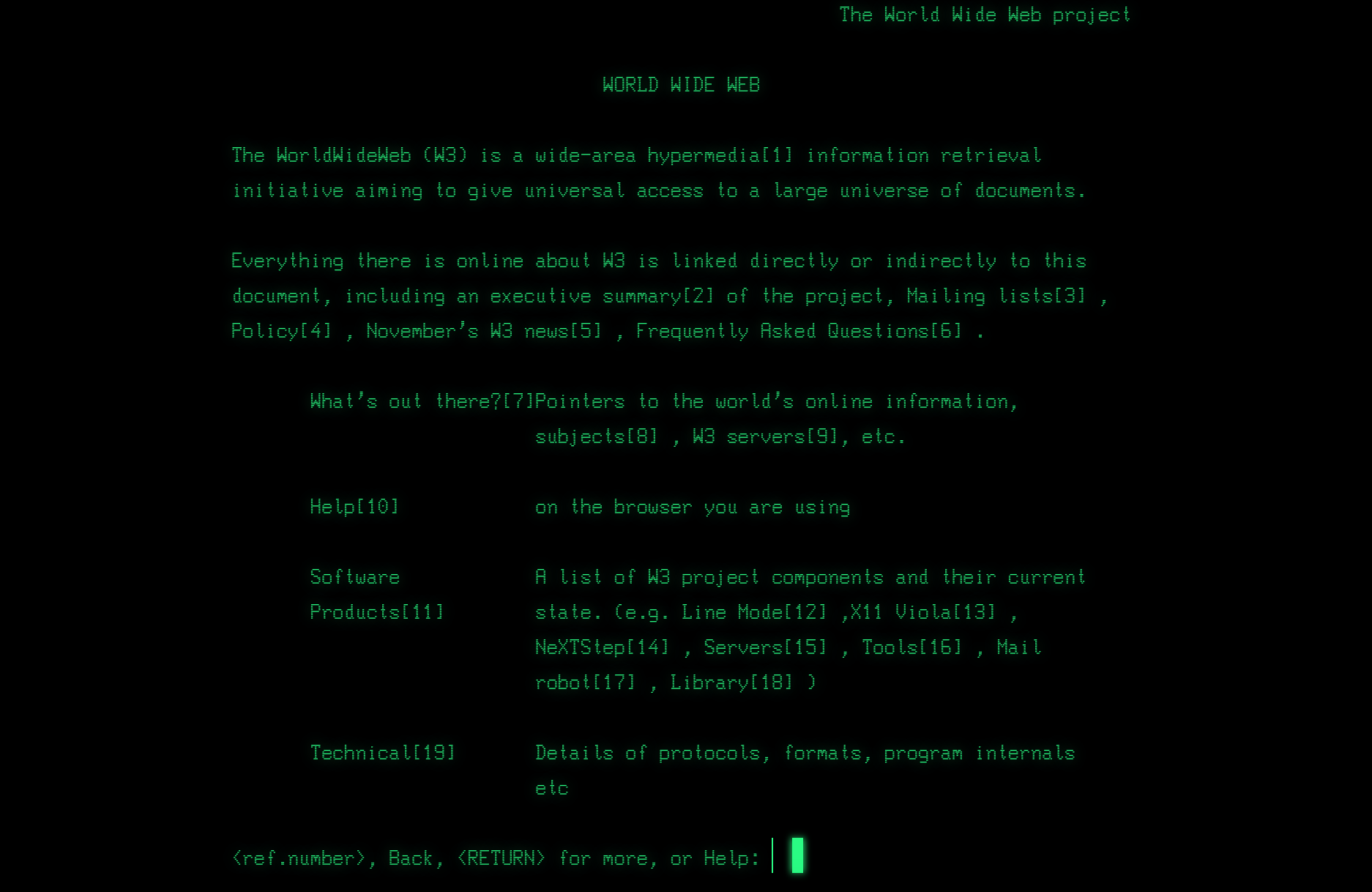
By the way, have you seen “father of the whole web”? Meet Tim Berners-Lee, in person. This man is considered the "father" of the underlying technologies of the web - HTTP, URI / URL and HTML. Alive Whole Eagle. 63 years.
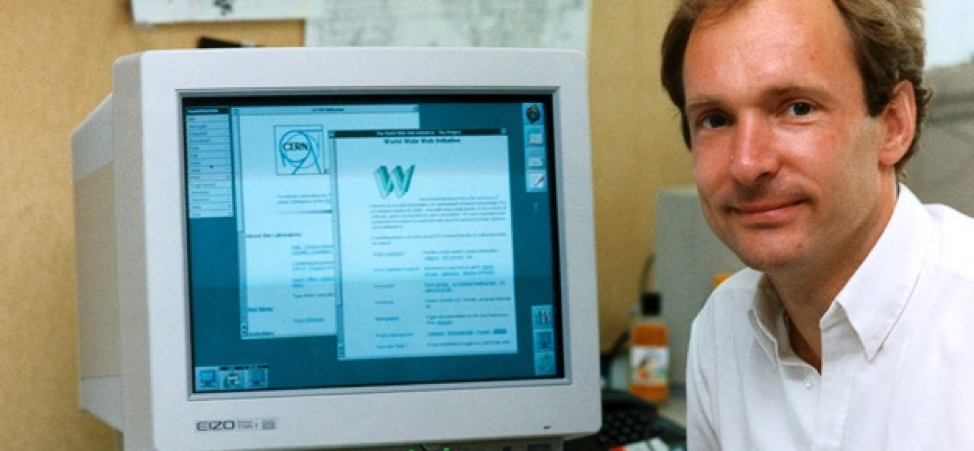
Who is the first hoster on the village?
Curious thing. Having rummaged in the western annals , there was no unequivocal opinion of who should be considered the very first hoster in the world. Indications diverge. Usually GeoCities, Angelfire and Tripod are mentioned in the bundle, offering this service to the overseas public.
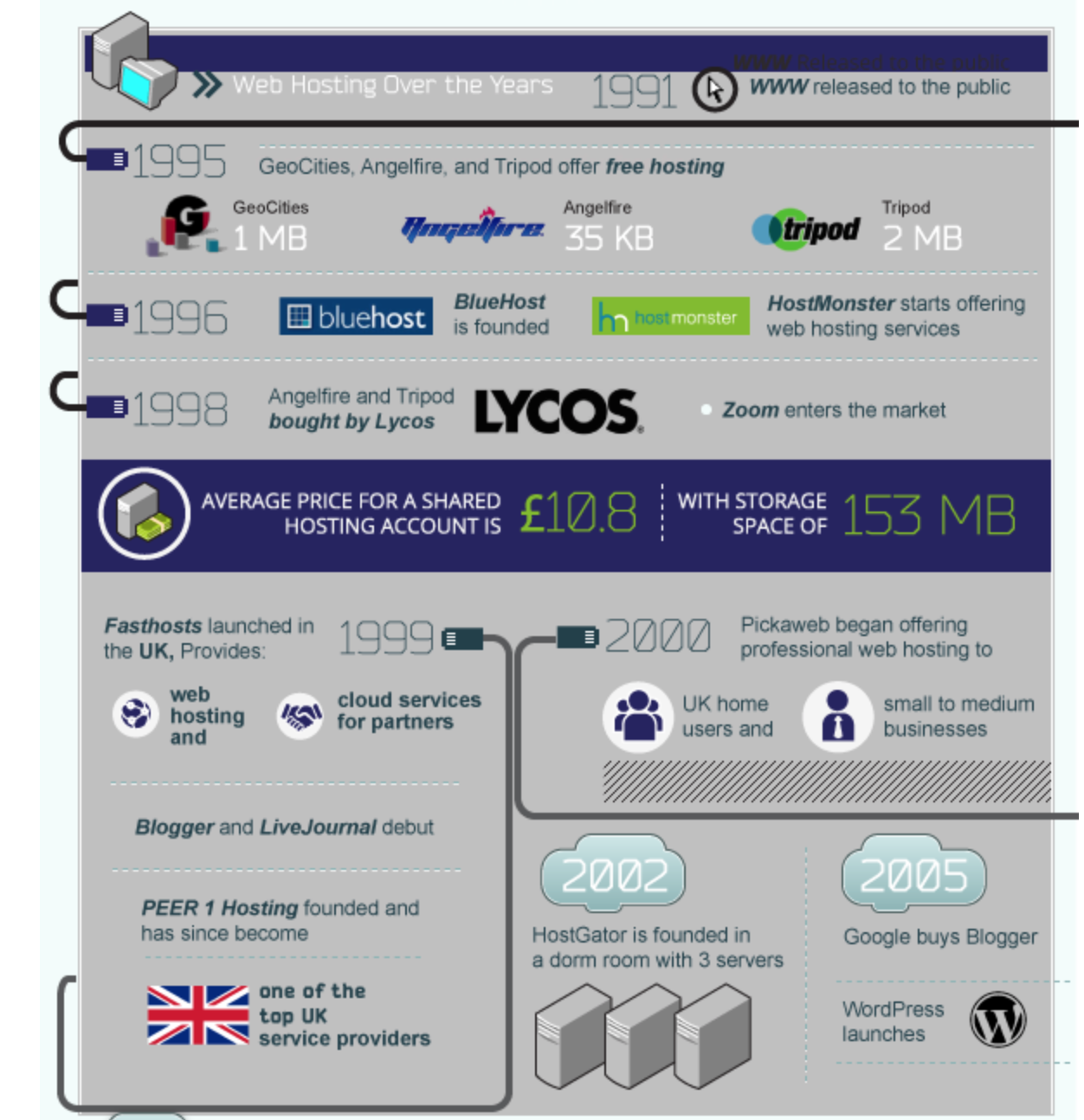
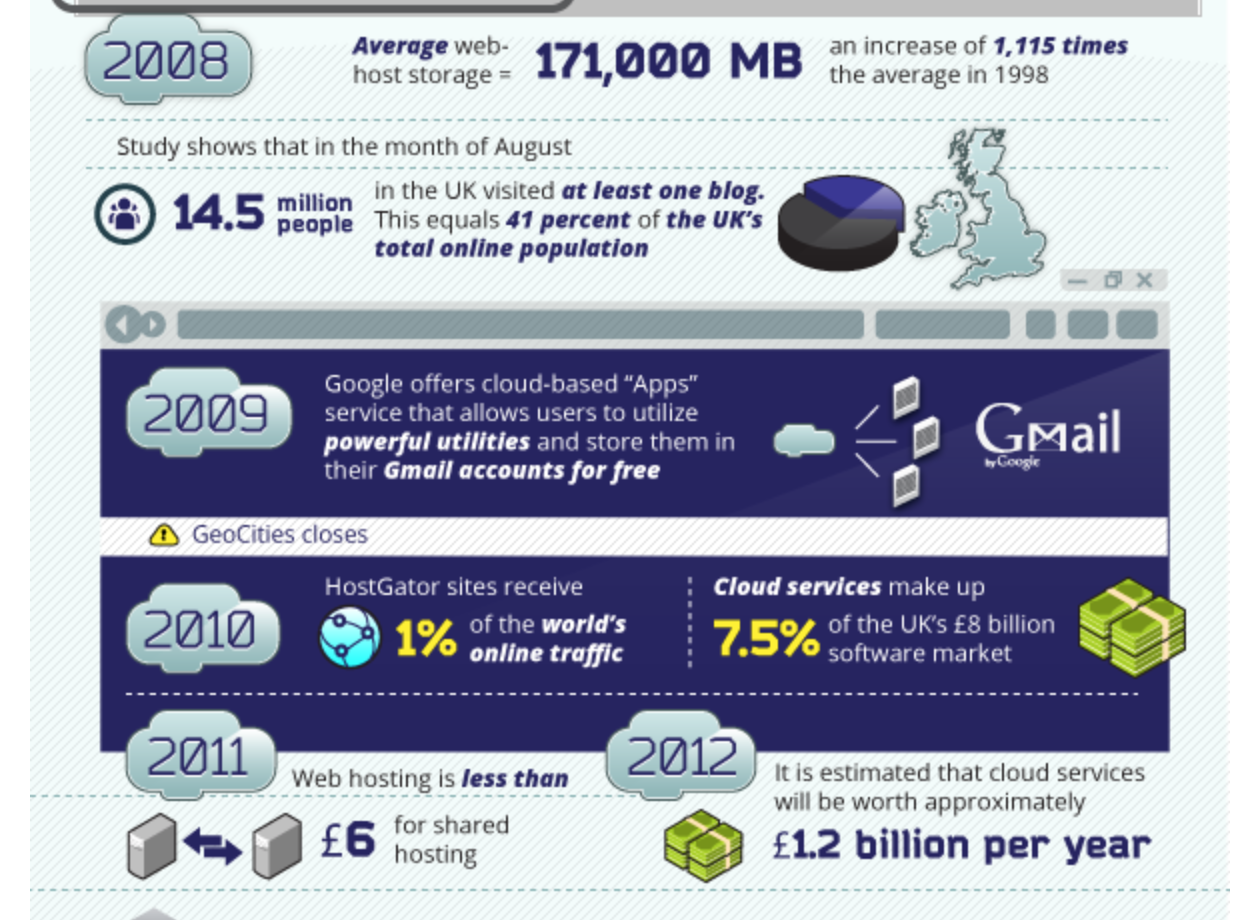
The starting point for Russian hosting services can be considered the milestone of 1999-2000, when companies appeared that provide only hosting and do not provide services for connecting the end user to the Internet. Although officially the Day Hosting provider in Russia began to celebrate only from March 1, 2011.
By the way, do you want to look at one of the first promotional offers of hosting services in the Russian segment of the network? Enjoy!
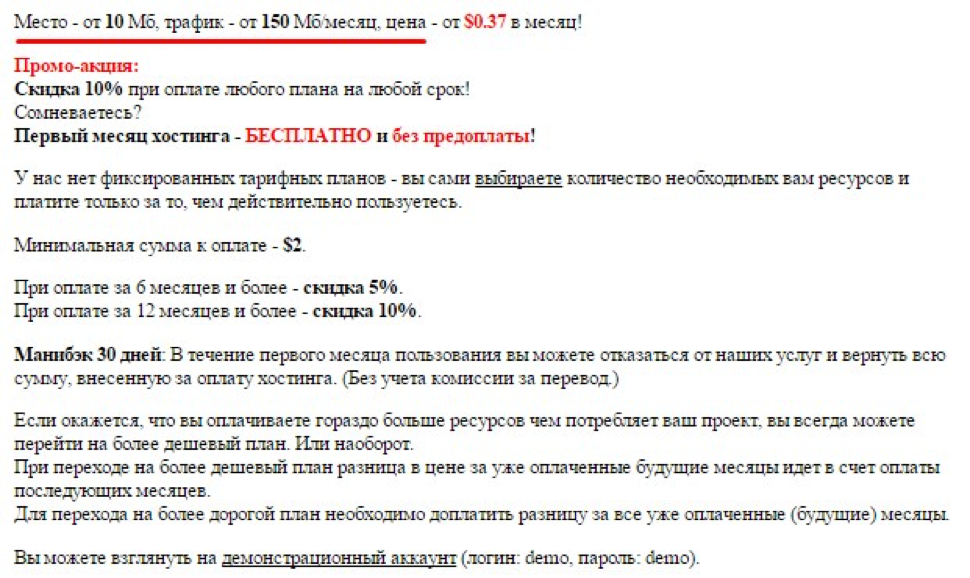
Prices and additional services as they say "deliver".
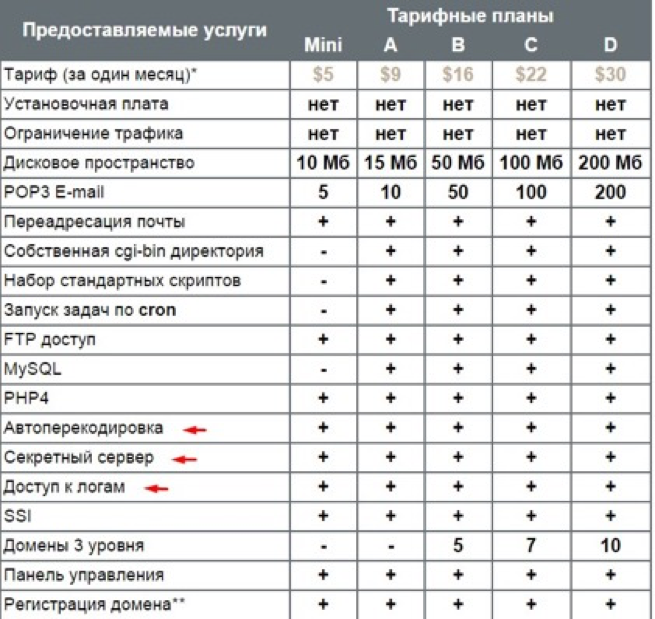
It is curious that the ratings of national hosting providers are very different, and it was not possible to find accurate data with money at all. In general, data on the Russian market is extremely small. And here it is not clear, or everything is so bad or vice versa, everything is so good, because, as you know, money loves silence. Under the link you can look at one of the sources of available information on the topic. Here is another one.
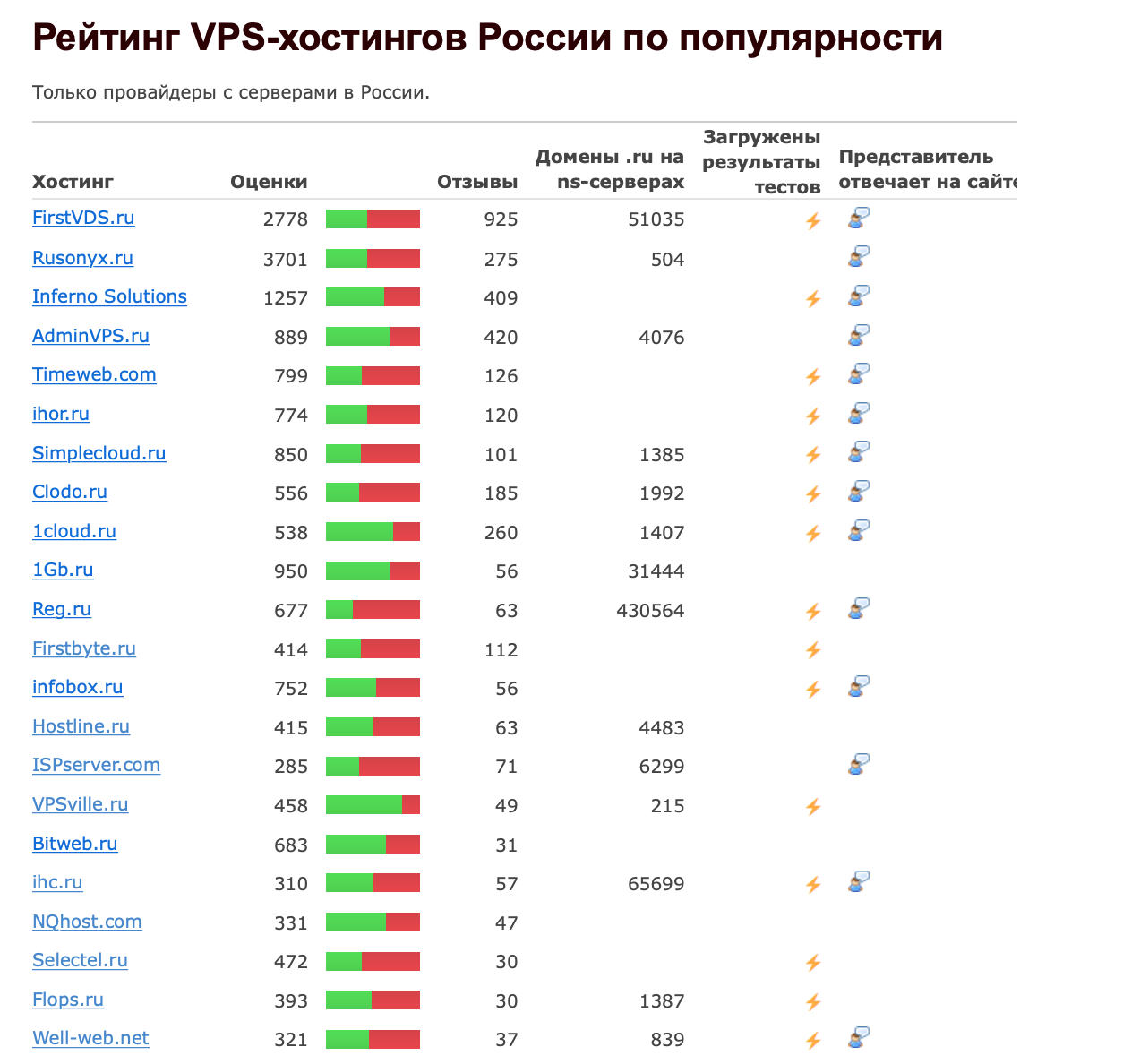
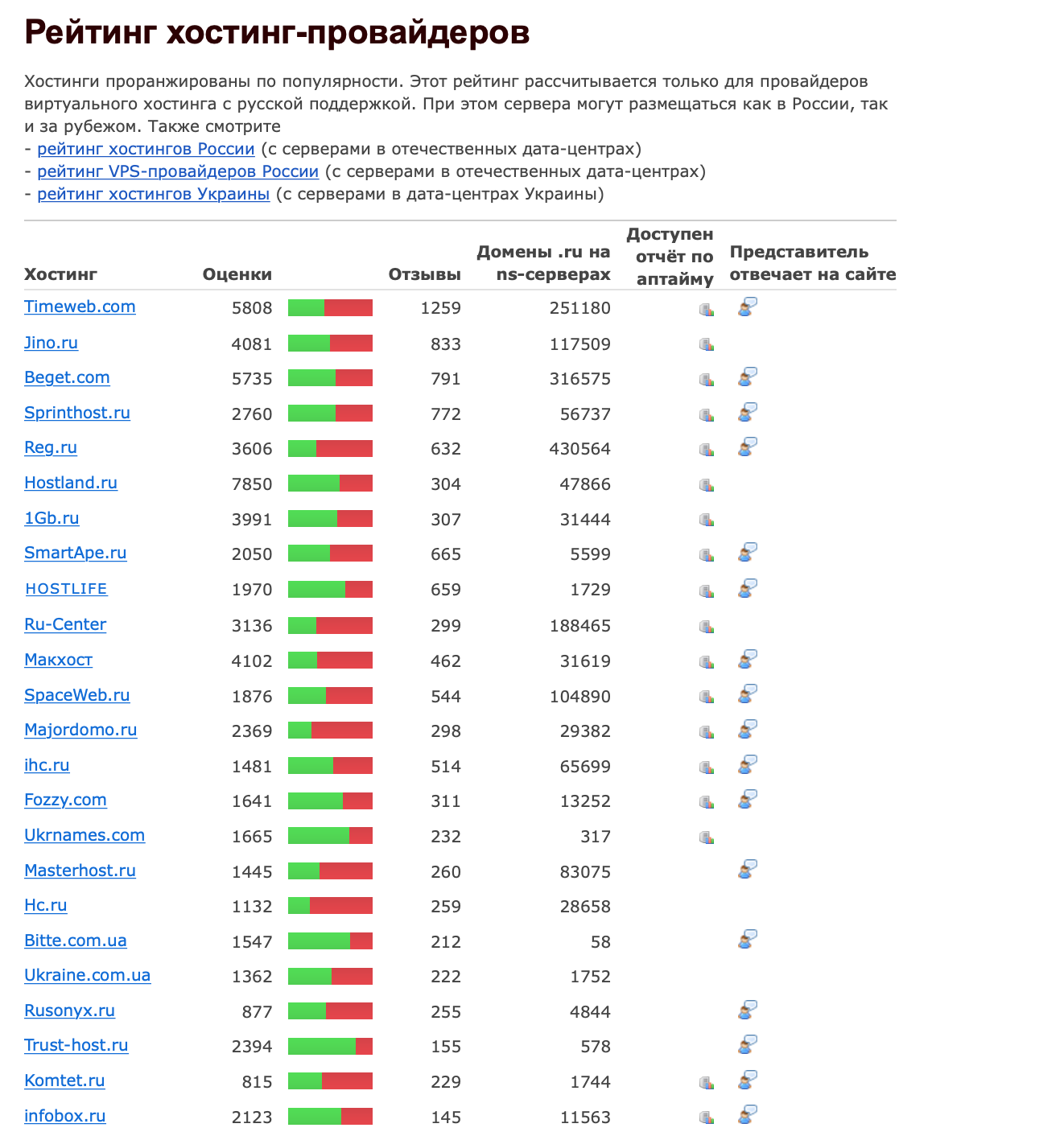
"Unwashed hosters" become stars ... but not all
In 2009, Sergey Belousov (founder of Parallels, Acronis, Runa Capital, Rolsen, etc.) told Konstantin Anisimov (my boss at Rusonyx), as he met with then-CEO of VMware Paul Maritz. They argued about virtualization technologies, Sergey argued that containers are a cool technology. Paul answered then that yes, the technology is good, but you chose the wrong market. We work in a respectable corporate market, and you make software for some kind of “unwashed hosters”.

Not so much time has passed, and unwashed providers and their customers have created a market that is many times larger than the virtualization market in corporations. And the share of VMware virtualization in the provider clouds is not that significant. But this is all in the world.
And what about us?
Very soon, the hosting industry in Russia will be a quarter of a century. Is everything here so unequivocally, frozen for the time being or, on the contrary, is moving full steam ahead for a brighter future? In fact, life boils and beats the key. Over time, some national hosters partially evolved to cloud service providers. Why not everything? What is the reason and what to expect in the future?

“When the business is moving forward, especially while the market has grown, there were few incentives to reorganize, we will say frankly. “Why repair watches that are not broken,” as the old English saying goes. Nevertheless, it is obvious that the development of business according to the traditional model for hosters every year becomes less profitable. Hence the disappearance of old-timers, all sorts of mergers and acquisitions. The market is gradually consolidating. And these processes will obviously continue in this and subsequent years! ”, Notes Konstantin Anisimov, CEO of Rusonyx.
Obviously, the entire growth of the provider market has long focused on the provision of cloud infrastructure. And those who want to develop should go to the clouds, there is no other option. But to launch a full-fledged cloud service is not so easy - technology orchestration of resources is much more complicated than simple VPS hosting. Therefore, it is good or bad, but not many will be able to go out into the clouds, for this you need serious investment costs and a team of developers and engineers that is adequate to the challenge.
Trends, brands, balalaika
In general, having rummaged in host subject matter, several obvious trends were drawn, about which practically all experts speak one way or another.
1. The development of cloud technologies and the rejection of the physical IT infrastructure by representatives of large, medium and small enterprises.
2. Integration and convergence. More and more big players are creating opportunities to integrate both their products with others and with the solutions of other companies. As a result, there is an increase in cloud services. If earlier small and medium business companies used on average about five cloud services, then in 2018 about nine cloud services fall to one advanced user.
3. Active development direction FaaS("Function as a service"). More and more users are starting to use serverless computing when developing their applications. As a result, software companies, web applications, chat bots, IoT and financial technology companies can reduce development costs up to 15-20 times.
The general trend is a move towards a server-based cloud-based architecture, where end users are increasingly abstracting from concrete hardware and managing allocated resources. It is becoming easier to use the clouds, although the clouds themselves are becoming more and more difficult.
Instead of a conclusion, I would like to discuss in the comments your perception of modern hosting providers and the expectations of their services. What do you want, but is not currently in their menu?

